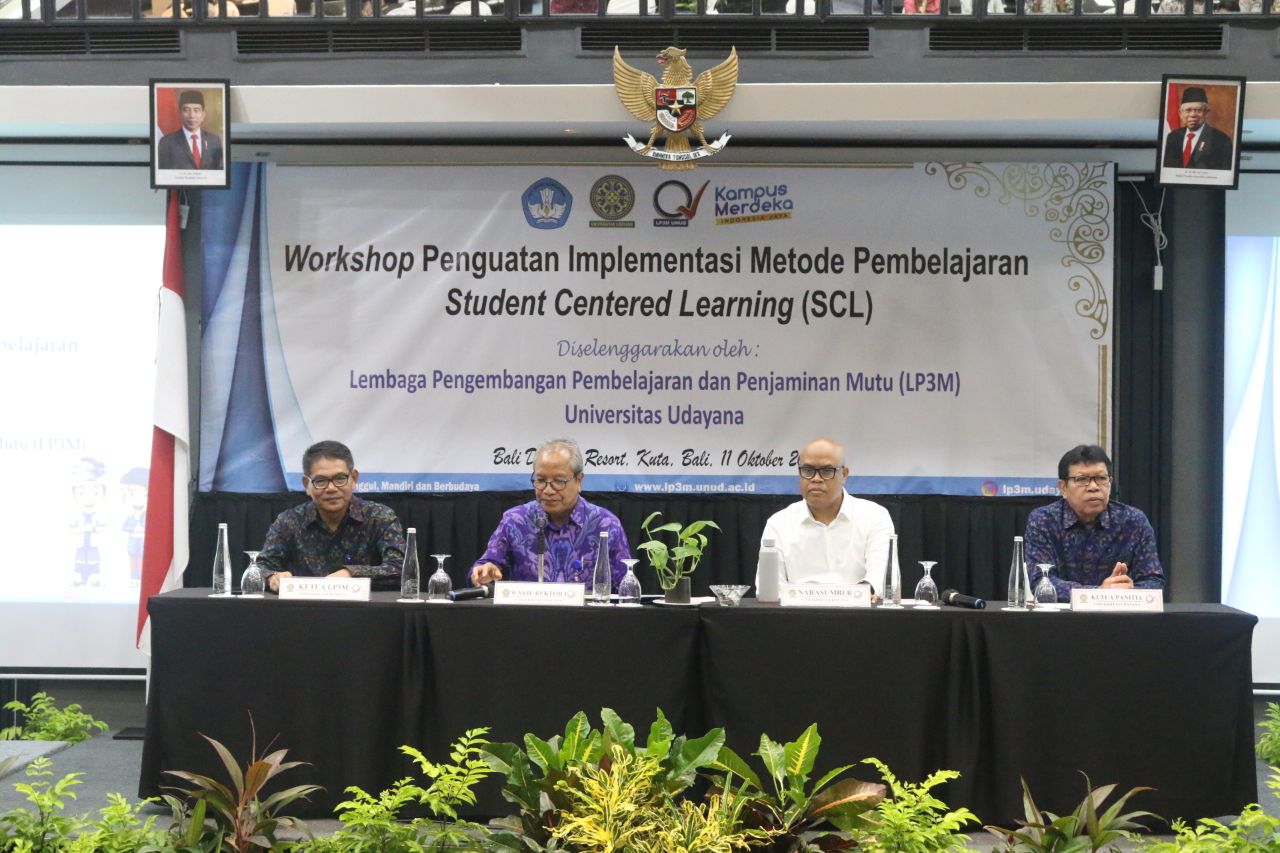LP3M Udayana University Holds Workshop on Strengthening the Implementation of Student Centered Learning (SCL) Learning Methods
Kuta - The Learning Development and Quality Assurance Institute (LP3M) of Udayana University (Unud) held a Workshop on Strengthening the Implementation of Student Centered Learning (SCL) Learning Methods at the Bali Dynasty Resort Kuta, Friday (11/10/2024). This workshop was opened by the Vice Rector for Academic Affairs representing the Rector of Unud and was attended by the Chair and Secretary of LP3M, Coordinators of Undergraduate and Diploma Study Programs, LP3M Center Coordinator, UP3D Coordinator, IKU Team Coordinator and also participants from ISI Denpasar and Warmadewa University.
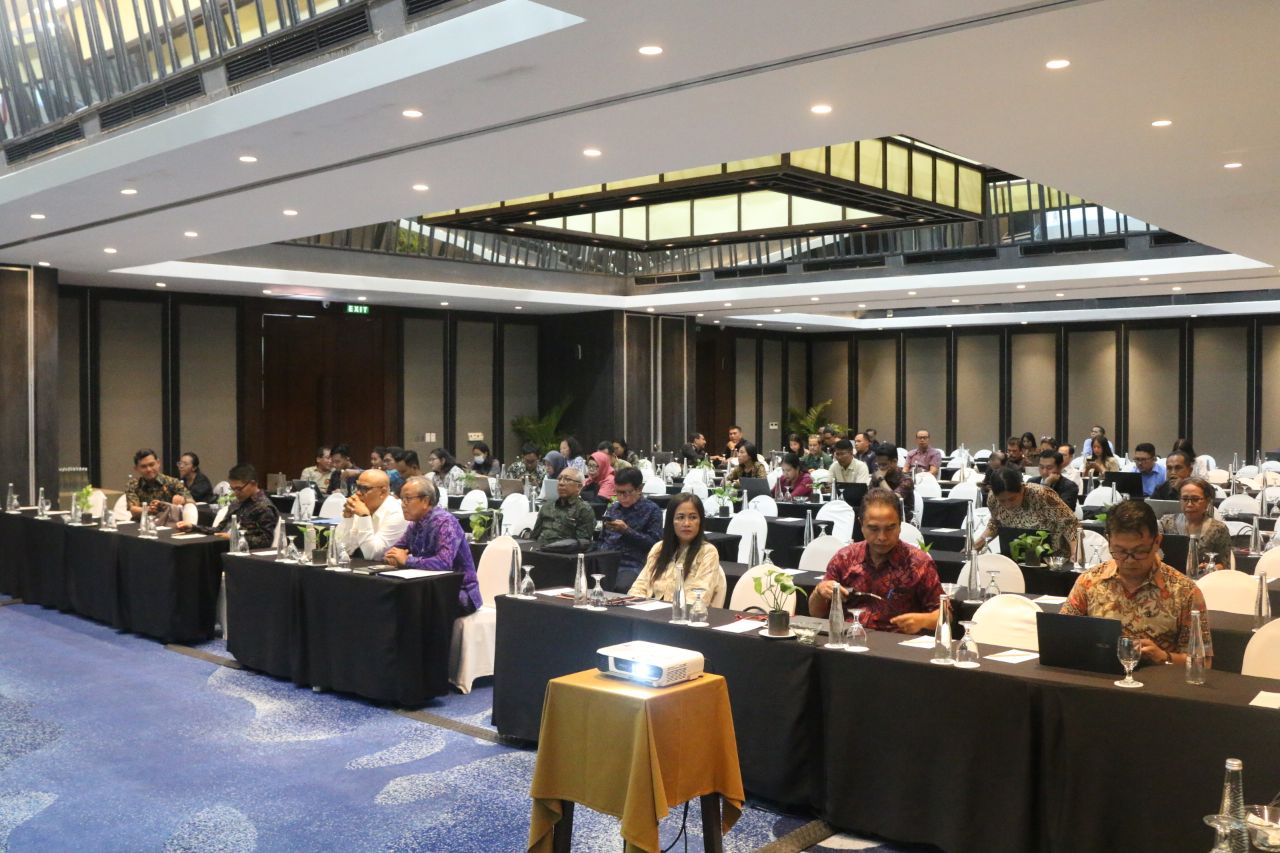
Meanwhile, the speakers in the workshop was Prof. Dr. I Wayan Adnyana, S.Sn., M.Sn (Rector of the Indonesian Art Institute Denpasar), Ir. Adi Panca Saputra Iskandar, S.Kom., MT (USDI) and Ni Wayan Lusiani, S.Kom., MT (Planning Section) with moderator Prof. Putu Alit Suthanaya, ST., M.Eng.Sc., Ph.D and Putu Ratih Kumala Dewi, SH., M.Hub.Int.
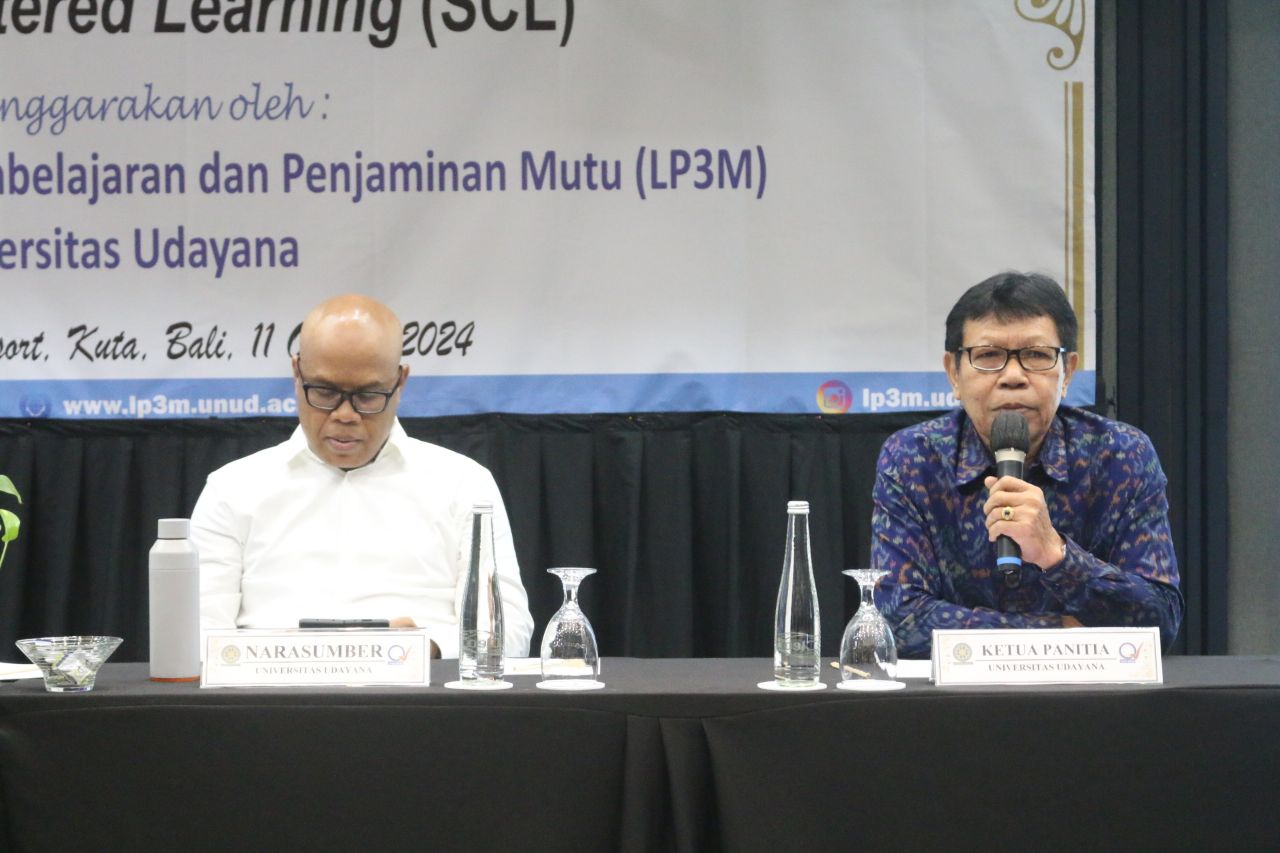
Chairman of the Committee Prof. Dr. Ir. G.P. Ganda Putra in its report delivered a workshop on strengthening the implementation of SCL learning methods, namely more specifically project based and case based methods which are one of the indicators in IKU 7. As stipulated or contained in Permendikbudristek 53 of 2023 in article 18 paragraph 9 states that especially for undergraduate programs and applied graduates to achieve achievements related to graduate competencies, including through the implementation of a project-based curriculum or other similar forms of learning. Then this rule has been included in Rector's Regulation Number 7 of 2024 regarding Udayana University Standards, especially point 30B.
Furthermore, if we look closely, the implementation of these regulations is even an indicator of higher education performance, especially IKU 7 related to the percentage of courses using participatory and collaborative methods out of the total existing courses. This is the performance contract between the Rector and the Ministry, the Rector with the Dean and the Dean with the Study Program Coordinator. So far, if we look closely at Udayana University, the target achievement of 40 percent IKU 7 has not been fully achieved, in fact many study program reports are invalid.
"On that basis, we are carrying out this workshop because we at LP3M are the people responsible for IKU 7 to carry out this workshop with the hope that the achievements of IKU 7 can increase," he said.
One of the speakers for this workshop was from the Indonesian Arts Institute (ISI) Denpasar, because they saw that ISI uses a lot of project-based learning methods because there are art creations and performances, so it is hoped that this can become a reference related to this learning. Apart from that, it also technically presented resource persons from the Planning Section and also USDI regarding the online system to provide an understanding of how the reporting system works so that it can be valid and recognized as IKU 7.
In this workshop, the party invited all Undergraduate and Applied Undergraduate Study Programs so that a total of 156 invitations were added from ISI and Warmadewa University. He hopes that participants can take part in complete activities including technical training.
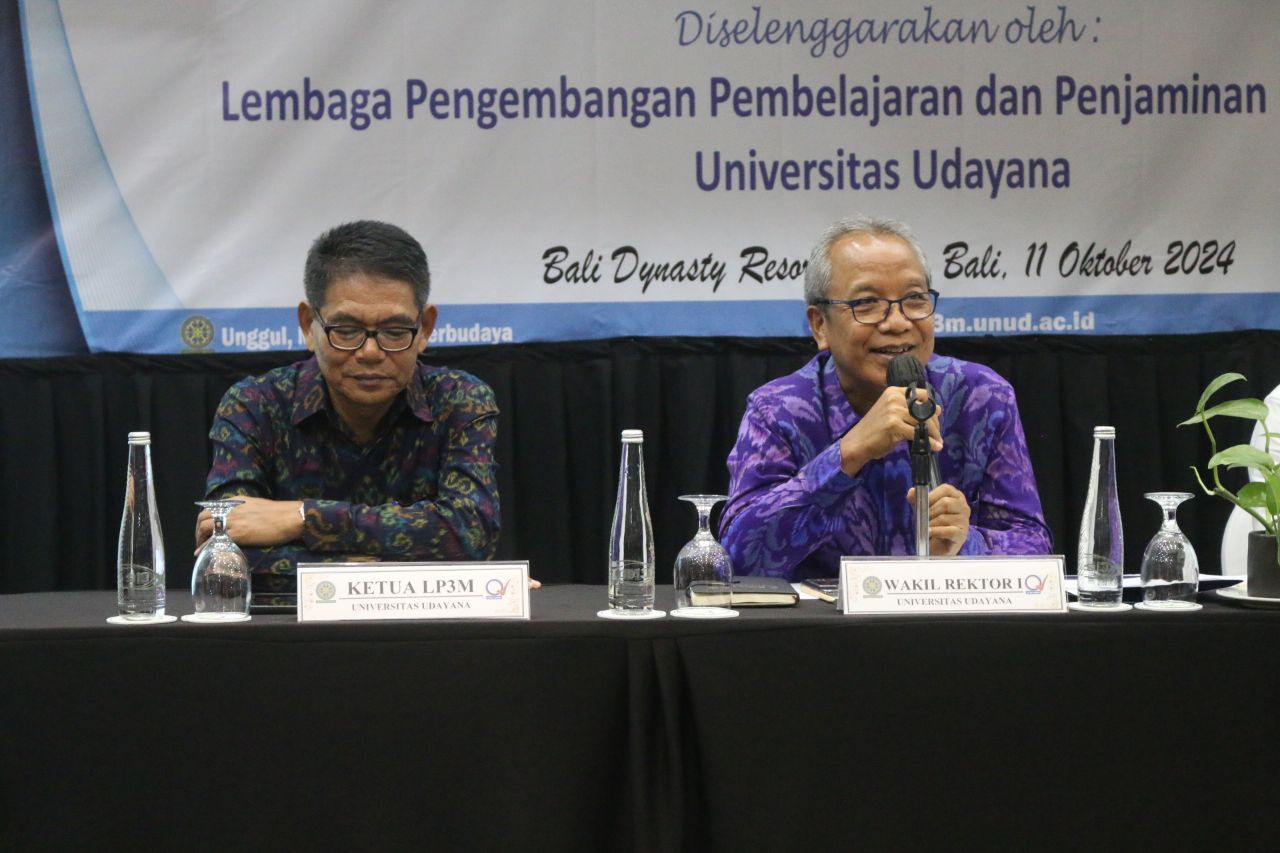
Meanwhile, the Vice Rector for Academic Affairs at Unud, Prof. I Gede Rai Maya Temaja in his speech conveyed the National Higher Education Standards or SN Dikti stating that a study program is a unit of educational and learning activities that has a curriculum and certain learning methods in one type of education, be it academic, professional or vocational education. This means that apart from developing a curriculum, study programs have an obligation to develop appropriate learning methods that are able to facilitate student-centered learning as mandated in the SN Dikti.
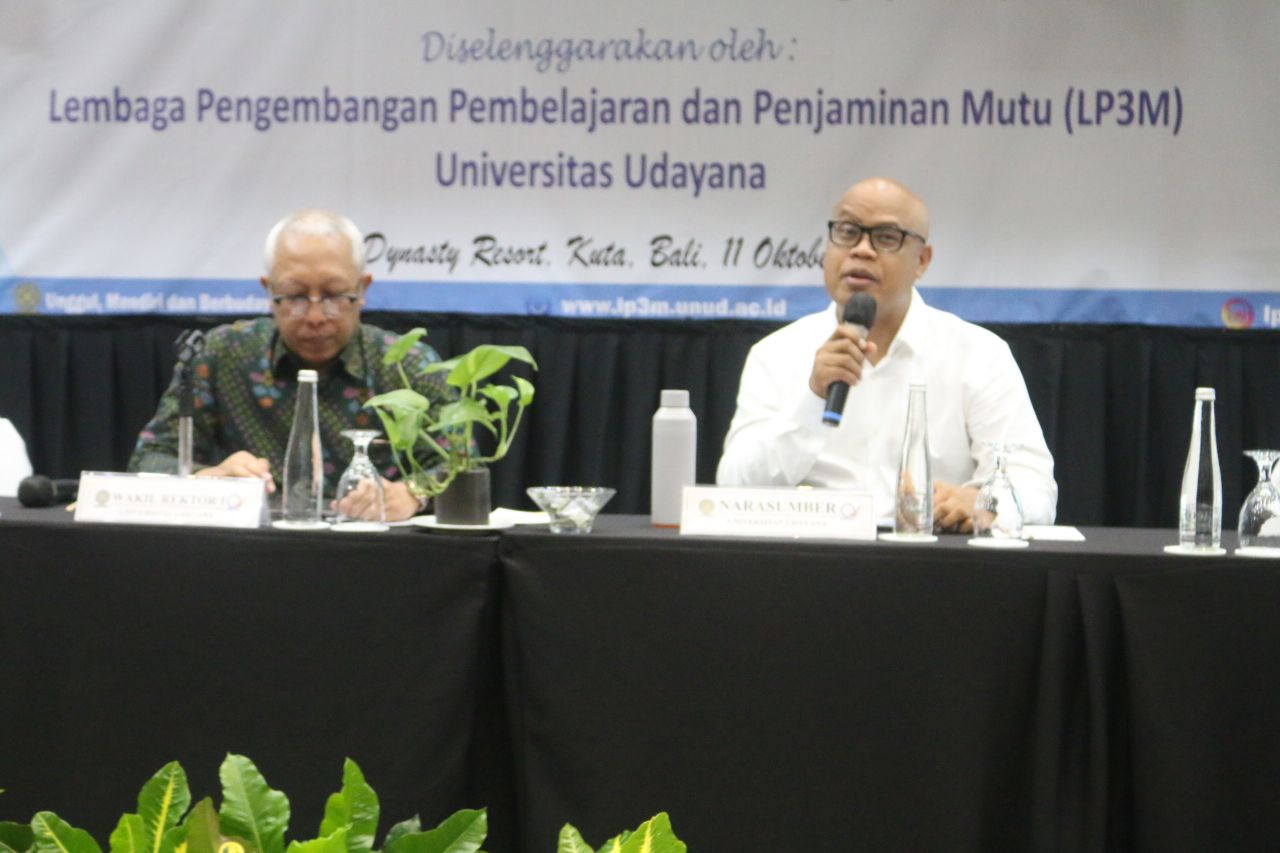
As is commonly understood, there is no best or most appropriate method for implementing centralized learning or student-centered learning (SCL). Suitability of learning depends, among other things, on learning outcomes, characteristics of teaching materials, then student characteristics, availability of resources and learning environment. So apart from that, the implementation of learning also depends on assessment or learning assessment.
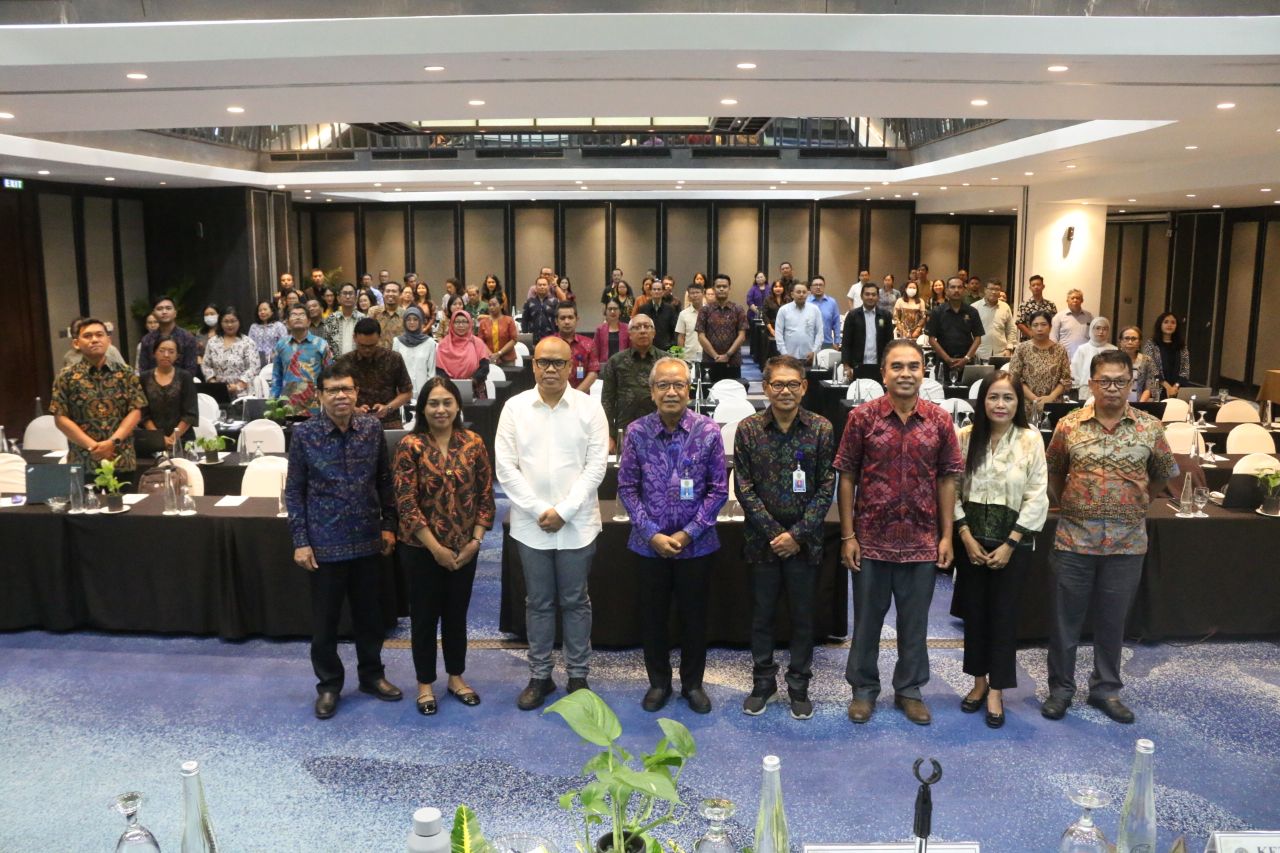
It is hoped that the resource persons present will provide guidance regarding this SCL and provide good practices. It is hoped that this can improve our performance related to IKU 7, developing and implementing student-centered learning that is in line with key performance indicators related to collaborative and participatory classes.

